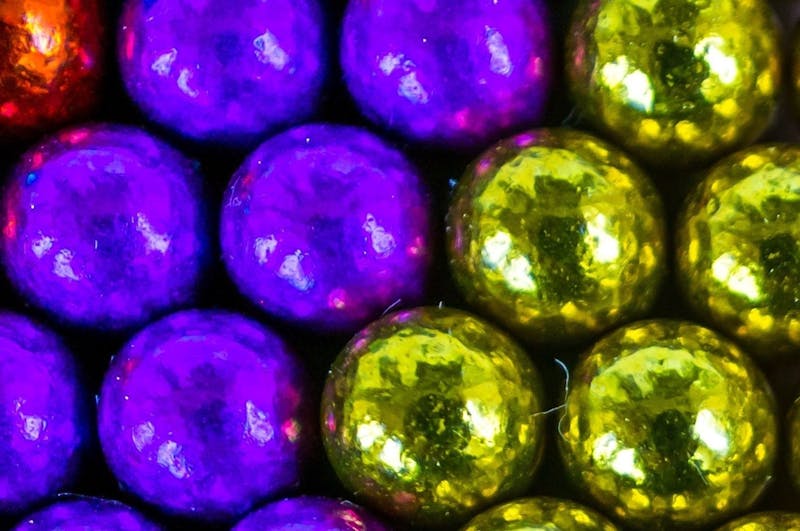
The parents of two young boys who recently swallowed magnets from those “super cool” magnetic ball sets that kids commonly play with have come forward with their personal stories of how this fun, quirky product can quickly lead to a medical emergency.
According to news reports, a 4-year-old boy from Indiana ate 27 rare-earth magnets while pretending that a snake that he had constructed with his father and 9-year-old brother was spaghetti. The incident happened when his father received a phone call and briefly stepped out of the room, and his brother left the room as well.
Two of the magnets became clamped to the boy’s uvula, which is the soft flap of tissue that hangs down at the back of the throat. The other 25 were discovered via an X-ray in the boy’s stomach. Doctors were able to retrieve the magnets in his stomach with a scope. Had the magnets passed into the boy’s intestines, doctors might have had to operate to remove them. Doctors also removed the two magnets from the boy’s uvula, which was left with some indents in the tissue.
Aside from a sore throat the next day from being intubated, the boy, fortunately, is fine. However, a 6-year-old boy from New Jersey was less fortunate.
That boy received a set of magnetic balls as a birthday gift and didn’t want to share them with his 11-year-old brother ― so he swallowed multiple magnets when his brother’s back was turned. The magnets made eight holes in the child’s colon, two of which were very close together, which necessitated that doctors remove a portion of his colon. The child required multiple surgeries, but says he now feels much better.
Unfortunately, the experiences of these two boys are not isolated incidents. They are a predictable outcome for a product that manufacturers put into the marketplace under the guise of being intended for adults ― as sculptures, stress relievers and desk toys ― when they are well aware that the colorful, BB-sized magnets appeal to kids and are used by them.
Why Are Magnetic Ball Sets Dangerous for Children?
Magnetic ball sets are comprised of rare-earth magnets, which are often 10 times stronger than ordinary magnets, such as refrigerator magnets. When more than one of these high-powered magnets is ingested, their powerful magnetic attraction causes them to rip through internal organs to join together. The injuries ― which can include perforations of the intestinal walls, twisting and/or blockage of the intestines, infection and blood poisoning (sepsis) ― often require surgery and can be life-threatening.
Unfortunately, medical emergencies involving children who have swallowed these powerful magnets are playing out throughout the United States at an alarming rate. A study recently published by the Journal of Pediatric Gastroenterology and Nutrition found that an estimated 23,756 children (42 percent of whom were younger than age 5) presented to hospital emergency departments with cases of suspected magnetic ingestion between 2009 and 2019. Of these cases, 3,709 involved small/round magnets and 6,100 involved multiple magnets.
While there are certainly multiple factors that contribute to why so many young children are ingesting rare-earth magnets, there is little doubt that one of them is the failure by manufacturers to adequately warn parents of the danger and to dispel the misconception that these magnets are safe for child’s play.
Since 2009, the Consumer Product Safety Commission (CPSC) has required manufacturers of products containing rare-earth magnets to label them for ages 14 and older. But look no further than the Amazon website to see that the warning has evidently not gotten through to the world’s largest online retailer, let alone parents. The magnets are found on Amazon using the search term “magnetic balls for kids.” Scroll through the reviews, and you will find numerous parents attesting to how much their children enjoy this product. By way of example, one parent wrote, “My 6-year-old absolutely loves these!! Keeps him busy. Initiates creativity.” Another parent wrote, “Love it! My 6-year-old had so much fun making necklaces and rings. I also enjoyed playing with them too!” A grandmother who said she enjoys using the magnets herself wrote, “I will probably buy two more of these for my 11-year-old grandson and 10-year-old granddaughter for a Christmas gift. I think it will keep them away from their iPads and occupied for a fair amount of time in a quiet activity.”
Even on the Neoballs website, which brands itself as a superstore for rare-earth magnets, reviews by customers who reportedly bought these magnets for kids are commonplace. For example, one reviewer wrote, “Kids play with this for hours … if you can would get the larger set for more building options.” Another wrote, “My nephew loves these things he can sit and play with them for hours creating things I wouldn’t have imagined. He is turning 11 and asked for another set so he can make “cooler” things. I highly recommend!!!”
Although Neoballs has responded to some of the reviews referencing children with a warning that the product is for ages 14 and older, watchdog journalists at FairWarning have reported that several of the cautionary responses were posted only after they contacted the owner of the site.
Indeed, the stepmother of the 4-year-old boy from Indiana who swallowed 27 magnets cited an episode of “Grey’s Anatomy” ― not a manufacturer’s warning ― as the reason why she knew the boy needed to go to the emergency room immediately when she realized he ingested the magnets.
Alan M. Feldman, a product liability attorney and co-founding partner at Feldman Shepherd, said it is a sad day when companies have so utterly failed in their legal duty to warn customers of the dangers of magnetic sets that parents are relying on storylines from TV shows to help keep their children safe. Feldman added that companies that label rare-earth magnet sets as being for adults while fully knowing that children are playing with them are not absolved from legal liability when children inevitably get hurt. “Manufacturers of magnet ball sets will not escape responsibility by a simple package warning that the product is intended only for older children or adults when they know ― and they do ― that small children are attracted to them,” said Feldman. “Small, powerful magnetic balls are simply too dangerous to be sold and should be removed from the marketplace.”
Feldman’s team at Feldman Shepherd, which includes partners Daniel J. Mann and Edward S. Goldis, have secured substantial recoveries on behalf of young children who were injured by swallowing tiny magnets that became separated from Magnetix toy sets. The team pursued the manufacturer of the Magnetix toy sets and in combination with the CPSC and other safety advocates helped to achieve a recall of the Magnetix product.

